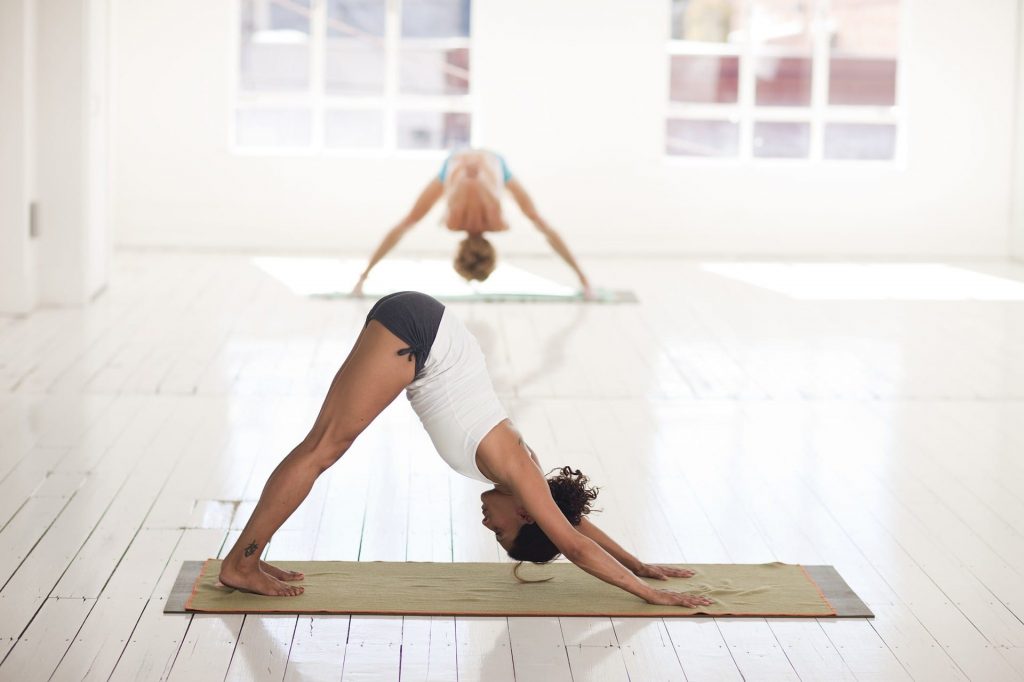The Benefits of Yoga on Mental Health
Depression is a common disorder that affects people from every nationality, religion, and gender. Depression does not discriminate when it chooses its victims. According to the University of Southern California, as of 2016, mental health and well-being was among the top five public health concerns in the United States. Today, it is within the top two concerns we face as a country.
Most of us already know that an imbalance of serotonin in the brain can be a cause of depression. And it’s become common knowledge that exercise helps to increase the level of this vital neurotransmitter. By increasing serotonin levels in your body, you increase your overall levels of happiness (hypothetically). This is the beauty of exercise.
In recent years, yoga has mainstreamed in American society. It seems that anywhere you look, you can see a yoga studio. Research tells us that these days yoga is more than just a workout; it can be a valuable part of your overall mental health treatment plan. Follow along to learn how to downward dog your way out of your depression.
Traditional Depression Treatment
Depression is known to have devastating effects on the body and mind. It can manifest and reveal itself in many ways, including neck and back pain, headaches, digestion problems, significant weight loss or gain, drug abuse, concentration problems, and sleeping issues like insomnia or intense fatigue and exhaustion. Due to these disturbances on your body and your life, it’s important to have a treatment plan if you suffer from depression.
While there are six subclasses of antidepressants, with at least 50 different medications available in total today, their track record as a single overall treatment isn’t the best. Research shows that 40 percent of people on these medications do not recover fully from their depression*. Often, patients will rely completely on the medications without changes to their lifestyle. Sometimes this works, and sometimes it does not.
*Please keep in mind that as with any treatments, they do not work the same for everyone. Do not stop or alter any other treatments you may be on without talking to your doctor first.
Benefits of Yoga on Depression
Since the 1970s, meditation and other stress-reducing techniques have been used in studies to possibly treat depression and anxiety. Yoga is said to reduce the impact of over-exaggerated stress responses that often occur in those with depression and anxiety. Yoga functions like other self-soothing techniques, like meditation and relaxation exercise. For many patients dealing with depression, stress, or anxiety, yoga may be a very appealing way to manage their symptoms. The scientific study of yoga shows that physical and mental health are essentially equivalent in importance.
By reducing the perceived stress and anxiety a person has, yoga helps to modulate the stress response systems, which in turn decreases physiological arousal symptoms like increased heart rate, high blood pressure, and loss of breath. There is evidence that having a consistent yoga practice helps increase heart rate variability, which can be seen as an indicator that the body’s ability to response to stress is more flexible.
Yoga’s incorporation of meditation and breathing can help improve a person’s mental well-being. With a regular practice, yoga helps to create a calm mental clarity, increases body awareness, centers attention, and sharpens concentration. In recent years, scientists have found that yoga therapy helps with a multitude of complex ailments including co-occurring disorders and addiction.
Some people who have not responded well to traditional depression treatments may do well with yoga. Unlike antidepressant drugs, yoga and the deep breathing that accompanies it target the autonomic nervous system. When this system is balanced out, the rest of the brain works better.
Starting a Regular Yoga Practice
Starting something new can be intimidating. However, there are so many resources available that cultivating a yoga practice is easier than it’s ever been. Yoga is found to be generally safe when practiced properly and it is available in many styles and levels.
Go to a Studio
Yoga can sometimes seem challenging for beginners and those with limited flexibility range. However, it shouldn’t stop you from trying! Yes, some poses can be uncomfortable, but there are easy alterations to make them more comfortable; don’t do the ones that hurt you! It’s helpful to begin creating a yoga practice in classes because you have an instructor present who can help you make the proper alignment adjustments, helping avoid possible injury.
Starting a new studio can be intimidating, and expensive. But these days, many studios offer discounts or promotions for first-time customers. Some studios even offer unlimited class passes that can be similar in price to a gym membership. Check out these tips for how to start a studio practice to make the transition into yoga a little easier.
Practice at Home
If doing yoga in front of other people is not your idea of a relaxing time, there are a ton of online resources to help you cultivate an at home practice. Yoga Journal recommends this list of depression-benefitting yoga poses. They are a great resource for anyone who wants to know the correct way to get in and out of poses without causing injury or pain. It offers alternative poses for those with specific needs, and tells you what each pose helps with.
Yoga with Adriene is another great resource for those looking to have a home practice. She has over three million subscribers, and over 300 free yoga videos to choose from. Utilizing online resources like these allows you to be comfortable in your environment when learning something new. It takes the ego out of the yoga equation and allows you to just surrender to the practice.
No matter how you start practicing, take it slow to feel it out and find what works best for you.
Recognizing that depression is fought with a series of tools is important when crafting your treatment plan. For some, treatment may be as simple as taking a pill every day. However, for those that do not have luck with traditional depression treatments, yoga is a great tool to add to your arsenal. And with all the resources available, there is no reason not to give it a try!
Author Bio: Billie Peacock is a fifth-generation Idahoan who spent her childhood soaking up all that nature has to offer. In her free time these days she enjoys deconstructing the mysteries of the world, writing, and lobbying for civil liberties.
The opinions and views expressed in this guest blog do not necessarily reflect those of www.rtor.org or its sponsor, Laurel House, Inc.
Recommended for You
- How Online Peer Support Helps Improve Mental Health Outcomes - January 30, 2025
- Breaking Down Gen Z’s Mental Health Crisis: Why Depression Rates Are Higher Than Ever - January 27, 2025
- Practical Ways to Sleep Earlier and Improve Your Lifestyle - January 23, 2025






Thanks for sharing this information.